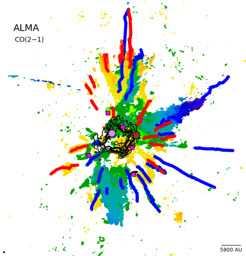Astronomy for development
Published in Astronomy

Major astronomical or planetary science
discoveries are often announced by Western and far-Eastern space agencies and
research organisations, but there are concerted efforts to develop facilities
and initiate astronomical communities in other regions of the world that
deserve to be highlighted. This is particularly the case in Africa, where
home-grown efforts such as the MeerKAT array and international partnerships
with Western organisations are delivering exciting astronomical findings.
Moreover, the increase and spread of astronomical activity in the continent is
having a significant impact on development, and there are several
astronomy-related projects focused on helping African countries achieve some of
the United Nations’ Sustainable Development Goals. For instance, the education,
training and sustenance of African school children in partnership with the International
Astronomical Union, who are applying the inspiration of astronomy to the
classroom, is leading to observable changes in literacy levels.
The editors of Nature Astronomy have compiled a Collection of articles related to astronomy beyond the usual hubs, and in particular the related development initiatives that astronomy is stimulating. You can read the Collection articles here: https://www.nature.com/collections/xtxtmqfrgf
Image credit: Lost Horizon Images/ Cultura Creative (RF) / Alamy Stock Photo




Please sign in or register for FREE
If you are a registered user on Research Communities by Springer Nature, please sign in